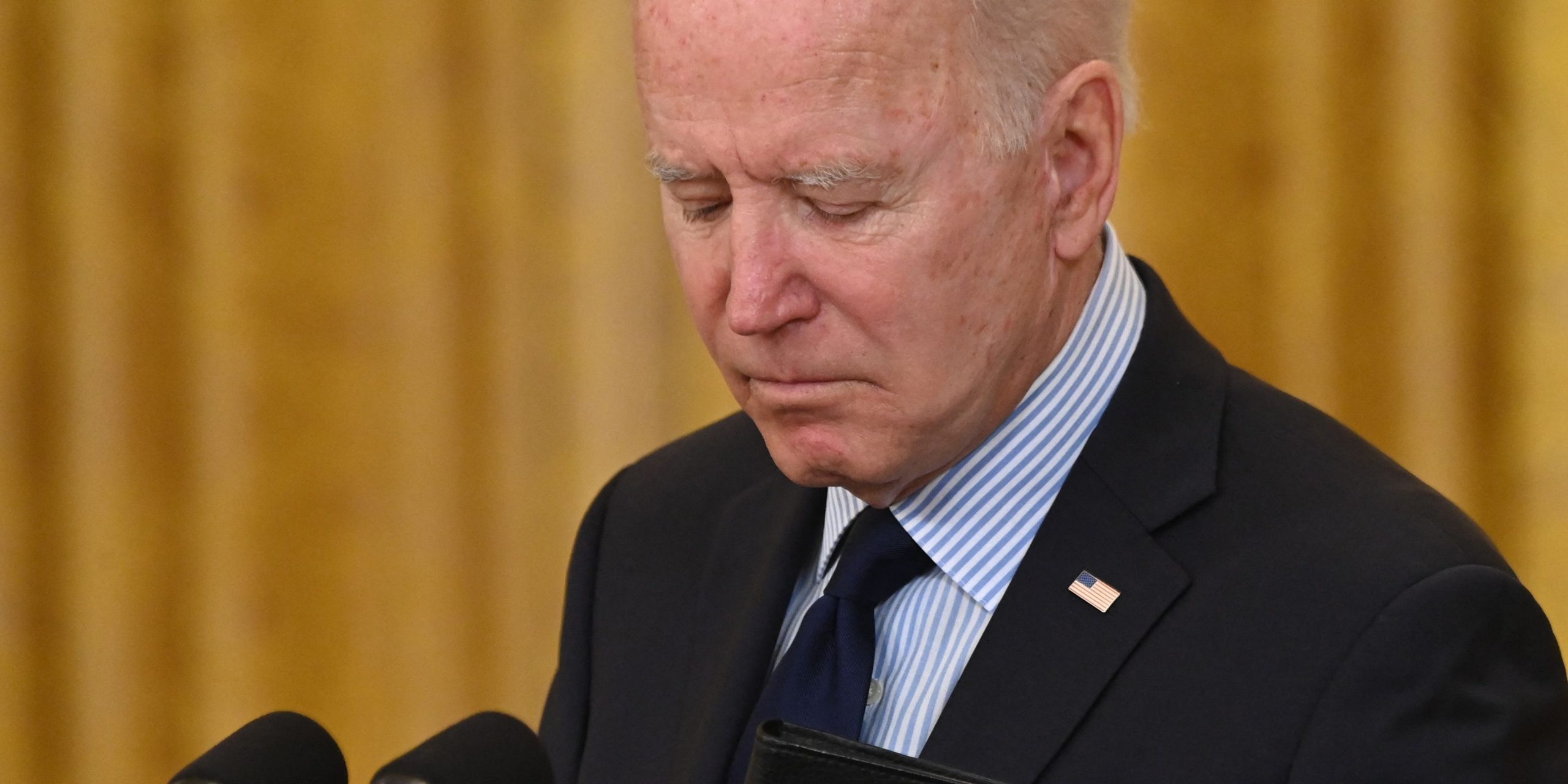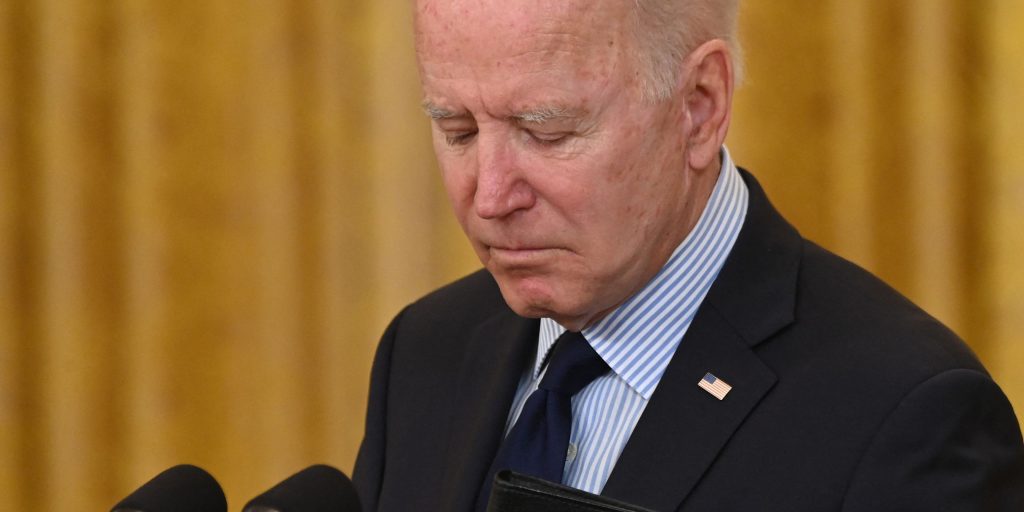
SAUL LOEB/AFP via Getty Images
- The Biden administration isn't stepping in to prevent the loss of jobless aid in GOP-led states.
- Around 2.1 million people are set to lose some federal aid starting next month.
- A White House official told Insider the Biden administration wants to strike a "balance" between workers and employers amid a labor shortage.
- See more stories on Insider's business page.
At least 19 Republican-led states are terminating federal unemployment aid programs starting in June in an effort to force more people back to work – Alaska and West Virginia are two of the latest. Some Democrats urged the Biden administration to step in and prevent this from happening, but there's no sign they will.
Sen. Bernie Sanders of Vermont called on the administration to keep jobless aid flowing under the Pandemic Unemployment Assistance program for millions of gig workers, contractors, and freelancers, set up under a federal rescue package early last year. In a letter to the Labor Department sent on Thursday, Sanders argued the agency had a legal obligation to do so.
The legal fight that Sanders is urging would be a bruising one at a moment Biden is pressing ahead with his $4 trillion economic agenda.
"They have not yet come out with a position that they can enjoin these states, and I know it's a difficult legal and practical consideration for them," Andrew Stettner, a senior fellow and unemployment expert at the left-leaning Century Foundation, told Insider. He said continuing the programs would either require buy-in at the state level, or the White House would have to confront Republican governors.
"They'd really have to clash with these states and it's still unclear their appetite for that clash," he said. Stettner recently projected that 2.1 million people would lose some form of unemployment aid in Republican states.
The largest chunk of that figure are on PUA and another federal program for the long-term unemployed. An estimated 1.3 million people would be deprived of all their jobless aid since they don't qualify for regular state benefits. The remainder would receive the state payouts, but they typically replace only 40% of an individual's past wages.
Biden is taking a hands-off approach on the issue after an unexpectedly dismal jobs report earlier this month. Last week, he underscored the ability of states to reimpose job-seeking requirements that were scrapped early in the pandemic as jobs vanished and unemployment surged. He also stressed that jobless aid was not the main factor keeping people on the sidelines, an argument economists largely agree with as well.
The White House is strongly indicating it's leaving it up to states to decide whether to yank the unemployment aid ahead of its end in early September.
A White House official who spoke to Insider on condition of anonymity cited progress made on distributing vaccines and said the administration expects more workers to reenter the labor force in the next few months. The official said they're attempting to find a middle ground between businesses and the unemployed as the economy recovers.
"We recognize that every state has different conditions on the ground," the official told Insider, adding "the announcements [Biden] made last week are designed to balance the needs of both workers and employers as we work through this unprecedented transition."
On Friday, Press Secretary Jen Psaki said, "I would say that we certainly understand that governors and leaders are going to have to make a decision in regard to unemployment benefits, but what's important to remember and what we remind people of is that, again, we don't see this as a major driver in preventing people from seeking employment and seeking work."
Republicans are urging governors to continue dropping the programs. "Our local job creators should not have to compete with the federal government for workers," House Minority Leader Kevin McCarthy of California wrote in a letter to governors last week.
The White House is doubling down on its proposed spending programs. But it appears unlikely that the $300 federal supplement will be extended after Sept. 6 given the opposition of at least one Democrat, Sen. Joe Manchin of West Virginia.

